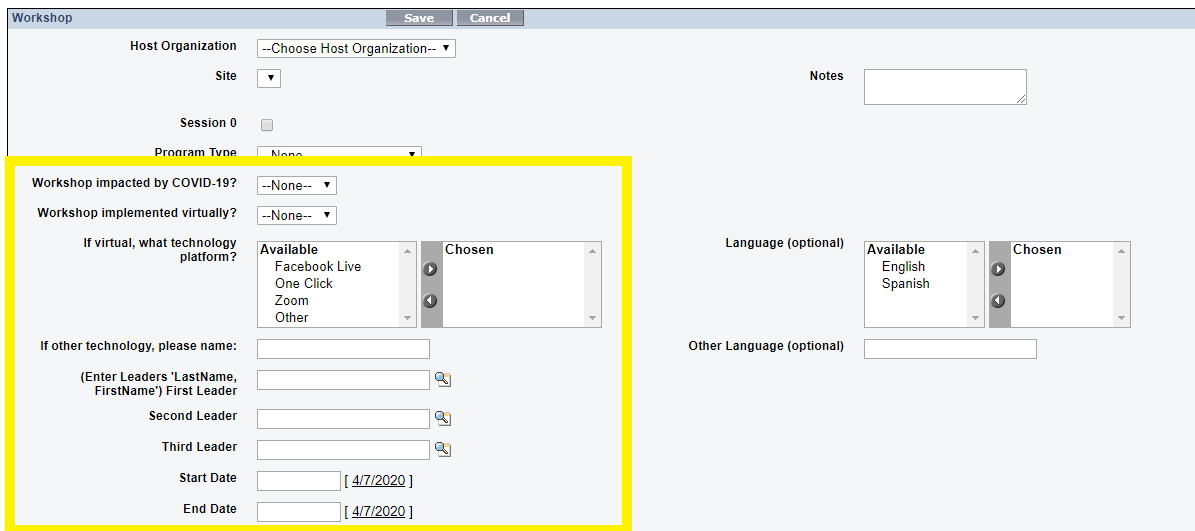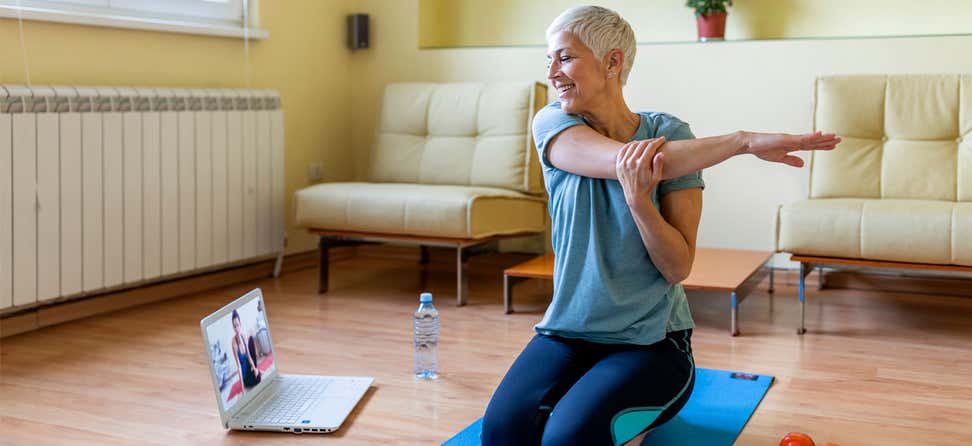Key Takeaways
View this list of frequently asked questions specific to data collection and management pertaining to health promotion programs during the pandemic.
Also explore a list of programs available remotely and questions and answers about virtual implementation.
Will programs implemented remotely count toward ACL CDSME and falls prevention grant participant reach and completer goals?
- Participant reach: Any program approved to be implemented remotely (tracked here) will count towards grant participant reach goals. In order to be counted, participants must have an attendance record of attending at least one remote session (e.g., one class).
- Completer reach: For ACL grants, a completer is an individual who attended at least 2/3rds of the sessions in a particular program, excluding any Session Zero classes. For example, 4 out of 6 sessions. Participants will be counted as a “completer” if they met this threshold, even if the workshop is delivered virtually or the entire workshop was not delivered.
- Note for the CDSME Toolkit + Phone Calls: Participants that complete 4 out of the 6 phone calls will be considered a completer.
Do we need to collect attendance data for workshops implemented remotely?
Yes. For participants to count towards your grant goals, they must have a record of having attended at least one workshop session. We recommend program leaders use the standard OMB-approved attendance form to collect attendance data. Download the falls prevention program attendance log and CDSME program attendance log.
We would like to track which workshops have been impacted by the COVID-19 pandemic, e.g., workshops that had to be canceled, rescheduled, or had to switch from in person delivery to remote delivery. Can we record this in the database?
Yes. We have added a question on the workshop data entry screen to track workshops that have been impacted by, or implemented during, the COVID-19 pandemic. This will allow us to see how many workshops were impacted and, if needed, also remove these workshops from contributing to your organization/network’s overall participant retention rate.
The question is stated, “This workshop was impacted by COVID-19: Yes/No/Unknown.” Grantees do not need to add this question to data collection forms, but are welcome to do so if it would be helpful for their data entry personnel (e.g., add to the falls prevention or CDSME program information cover sheet). The image below demonstrates how this question will appear in the database.

Can we use the database to track which workshops are implemented remotely?
Yes. We have added two questions to the workshop data entry screen to track if programs were delivered remotely and, if so, what type of technology was used to deliver the program (e.g., Zoom, Facebook Live, OneClick, Other). The questions appear in the database as: “This workshop was implemented virtually: Yes/No/Unknown” and “If YES, what technology was used? Select all that apply.” The image below demonstrates how these questions will appear in the database.

How can we collect participant pre/post-program surveys for programs implemented remotely and enter the information into the CDSME and falls prevention databases?
The ACL falls prevention and CDSME pre/post-program surveys (falls prevention and CDSME) ask participants questions about personal health information (e.g., physical/mental health conditions) and personally identifiable information (e.g., name, zip code). These data are protected by the Privacy Act and therefore must be collected and transferred using secure, protected platforms.
Grantees can electronically send participants surveys using secure platforms. After you retrieve the data from those platforms (typically downloaded as a spreadsheet), enter the data into the Falls Prevention or CDSME database, or into your own data management system. Follow the steps below.
- Create your electronic participant pre/post survey using a secure data collection platform. We recommend using a HIPAA-compliant platform such as Alchemer (formerly Survey Gizmo) or JotForm.
- Visit the Healthy Aging NC website for fillable versions of the required data collection forms for ACL grants, as well as a short video on the new CDSME forms.
- After participants have completed the survey(s), export the survey data.
- You may manually enter the survey data into the Falls Prevention or CDSME database, or into your own data management system, in the same way that you would enter paper survey forms.
- For virtual programs, the host organization/implementation site will be the entity that is organizing the workshop, even if it is not physically held in that location.
- If you use a third party data management system (e.g., Workshop Wizard, Compass), you can then export the data from it and import it into the Falls Prevention or CDSME database by using the Data Migration Template (falls prevention template and CDSME template). If you use the Data Migration Templates, send your completed data migration template using a Safe File Transfer Protocol (SFTP) server. Falls grantees should send data to falls_data@ncoa.org, and CSDME grantees should send data to cdsmedb@ncoa.org.
For more information about data security practices and protocol, view the Privacy & Data Security guidebook.
When hosting virtual workshops, what should be entered as the host organization?
For virtual programs, the host organization should be the agency that has led coordination of the workshop. This could be the grantee organization or a partner. The host organization is often responsible for training master trainers and leaders/facilitators and for planning and monitoring the implementation of programs. Often (but not always) the host organization holds the program license.
When hosting virtual workshops, what should be entered as the implementation sites?
The implementation site is the physical location where the evidence-based program takes place in the community (i.e. the venue). Since no physical location is necessary for virtual workshops, you may do one of the following:
- The implementation site entered is identical to the host organization.
- The implementation site entered indicates a partner of the host organization (that would usually serve as the physical location of the workshop) that played a role in promoting or implementing the workshop.
Have others collected program data from participants by phone or online?
There are several ways to collect pre- and post- program data from participants remotely.
For programs conducted by phone, the program facilitator can collect pre-and post-workshop survey data from the participant either when they are registered for the program or by adding 15-20 min to the first session and last session. Some organizations have mailed a copy of the form with return postage for the participant to complete and send back.
For programs conducted by video-conference, the program facilitator or data manager can send all participants a link to complete the pre-workshop survey either as part of registering for the workshop or any time prior to joining the first session. The post-workshop survey can be provided as a link during or following the last session. Organizations have reported using SurveyGizmo or JotForm to collect information online.









